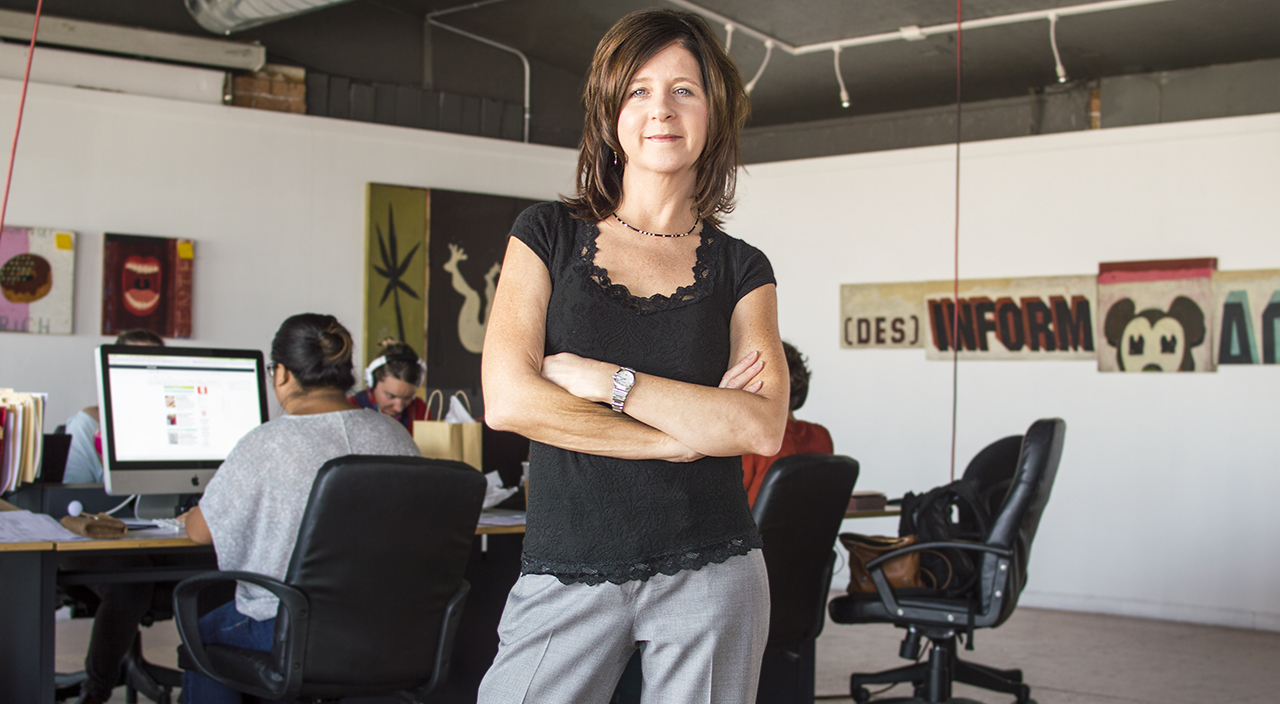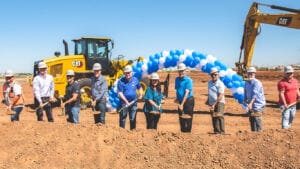It takes one to know one. When it comes to small business in Arizona, Kimber Lanning is and knows everyone.
Lanning, champion of local businesses as the founder and executive director of nonprofit Local First Arizona, dropped out of Arizona State University at the age of 19 to open Stinkweeds, an independently owned and operated music store and website with a slant toward independent labels and bands. Twenty-seven years later, the local record store near Central Avenue and Camelback Road in midtown Phoenix still stands.
“It was really a matter of working all day everyday for pennies and trying to reinvest the money as quick as I could. And customer service,” Lanning said.
To anyone starting his or her own business, Lanning says give it a 110 percent.
“I have talked to a lot of businesses that think, ‘I’m just gonna keep my job and do this on the side.’ I really don’t advise that.”
She says people need to be willing to and jump in with both feet and make sacrifices to survive.
In the early ‘90s, Stinkweeds hosted small shows and sold records. Then, in 1999, Lanning opened a second business, a venue called Modified Arts.
“It was a hub for sharing and the creative community,” Lanning said. Modified Arts provided a stepping stone for a young creative community to develop into professionals. Lanning developed Modified Arts into a respected gallery and prominently recognized venue for live music and performance.
When Modified Arts opened in the ‘90s on Roosevelt Row in downtown Phoenix there were only two stores on the street, a hub cap shop and a liquor store.
“I opened up Modified Arts … when (Roosevelt Row) was largely abandoned and a forgotten neighborhood, and (I) was able to fortunately be involved in the transformation of this neighborhood,” she says.
While operating in the business world, Lanning discovered that a lot of bright young people were leaving Arizona and she wanted to explore the economic impact of people leaving and explore ways to keep them in the state. Additionally, she wanted to create a level playing field for local young businesses.
“Too often we give government subsidizes to national chain retailers, and I just wanted to make sure the local business have a fair opportunity to compete,” Lanning said.
Lanning has also been active for the better half of the last decade in working with the City of Phoenix to make adaptive reuse more attractive to developers and small businesses. Most notably, Local First was involved with The Newton, which took a unique approach to development. The mixed-use adaptive reuse project was funded by multiple stakeholders — the incoming tenants.




